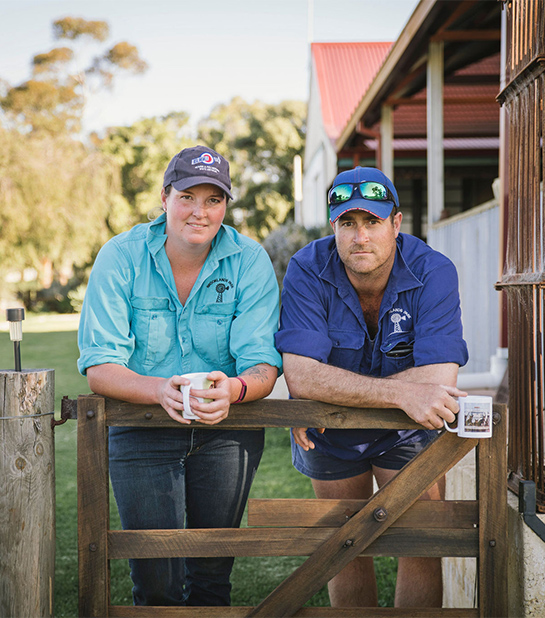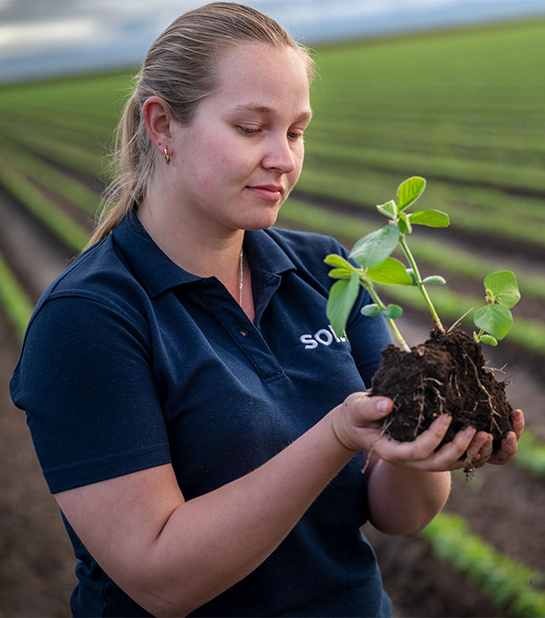Key Points
- We surveyed farmers in North Central Victoria and on the Eyre Peninsula.
- Women and men farmers hold different perspectives on key land management issues.
- More women than men rate environmental issues such as soil salinisation, climate change, and native flora and fauna as important.
- More men than women rate economic issues such as creating wealth and striving for a profitable business as important.
- Incorporating both women and men’s knowledge when creating soil innovations may facilitate environmentally and economically sustainable agriculture.
- Fewer women responded to the surveys than men. Ensuring female farmer’s knowledge and perspectives are included in future research projects is important.
Our Research
To improve our understanding of farmer beliefs and values, we conducted Social Benchmarking Surveys with farmers in North Central Victoria (2019) and the Eyre Peninsula of South Australia (2020). These surveys are part of our ‘Surveying Farm Practices’ project and help us understand agricultural practices, influences on decision-making and the key land management issues of Australian farmers.
We asked landholders a series of questions ranging from demographic information (including gender) to property management issues. Survey participants were also asked whether they identify as full-time farmers, part-time farmers, hobby farmers or nonfarmers.
Research Findings
The answers revealed significant differences between men and women regarding their perspectives on issues that impact farm practice and decision-making.
Women were more likely to prioritise environmental issues, specifically elements of soil degradation, including low biological activity and dryland salinity. Economic viability was generally a greater concern to male farmers.
Women were also more likely to engage with indigenous people in relation to land access and more open to taking action to address climate change.
Across the two survey sites, differences between women and men’s responses in the Eyre Peninsular and North Central Victoria were similar on issues around financial issues and climate change whereas differences in women’s and men’s views about soils and the environment were more evident in North Central Victoria. Only 22% of respondents in North Central Victoria and 10% in the Eyre Peninsula identified as women, with a greater number of female landholders in the non-full time farming category.
When reflecting on sources of information related to the management of their property in the past 12 months, women preferred Radio National, Facebook, Instagram, environmental organisations, and local council as their top sources. Men in contrast favoured email, Twitter, state and regional agricultural organisations and local farming groups, journals, magazines, newspapers, and other farmers for their information.
Interest in field days also differed, with men more likely to attend. In the Eyre Peninsula, 46% of women attended field days in last 12 months compared to 57% of men. North Central Victoria revealed comparable relative figures, with 33% of women and 46% of men. Men were more likely to attend events focused on soil health, while the women preferred events with an emphasis on native plants and animals.
Significance of Findings
Soil research and outreach initiatives have often excluded Australia’s women farmers often because farmers are assumed to be men, with women playing the supporting role. Including women’s voices in this research has highlighted key differences in the ways that women view and relate to their farms and their wider physical and social environments. To ensure that their voices are heard, and their knowledge valued, we must include women in soil research and outreach. Inclusion also enables increased decision-making power to contribute to innovation in farm practices to improve soils.
Recognising the knowledge of women and men farmers as complementary, interdependent and of equal value nurtures inclusive innovation. To facilitate this innovation, research and outreach frameworks need to explicitly question how knowledge is shared and the power structures that underpin these processes.
Next Steps
We are continuing our Social Benchmarking Surveys in Central West NSW and Tasmania.
The Soil CRC is funding a PhD scholarship to investigate how women’s knowledge can contribute to improved soils in Australia. This research will build on the survey data through interviews, focus groups and workshops with farmers in the Eyre Peninsula of South Australia and Central West NSW.
Through this research we hope to learn more about:
• how gender influences perspectives on different farming practices
• how female farmers are currently participating in agriculture and agricultural outreach
• how representations of female farmers may impact participation in outreach
• how female farmers can shape and contribute to change in agricultural practice
This research will lead to more inclusive knowledge sharing in farming practice innovation and contribute to improved soils and agricultural sustainability.


Project Team and Fact Sheet Authors
Linda Wirf, PhD student (Charles Sturt University)
Hanabeth Luke (Southern Cross University)
Catherine Allan (Charles Sturt University)
Posted May 4, 2022

